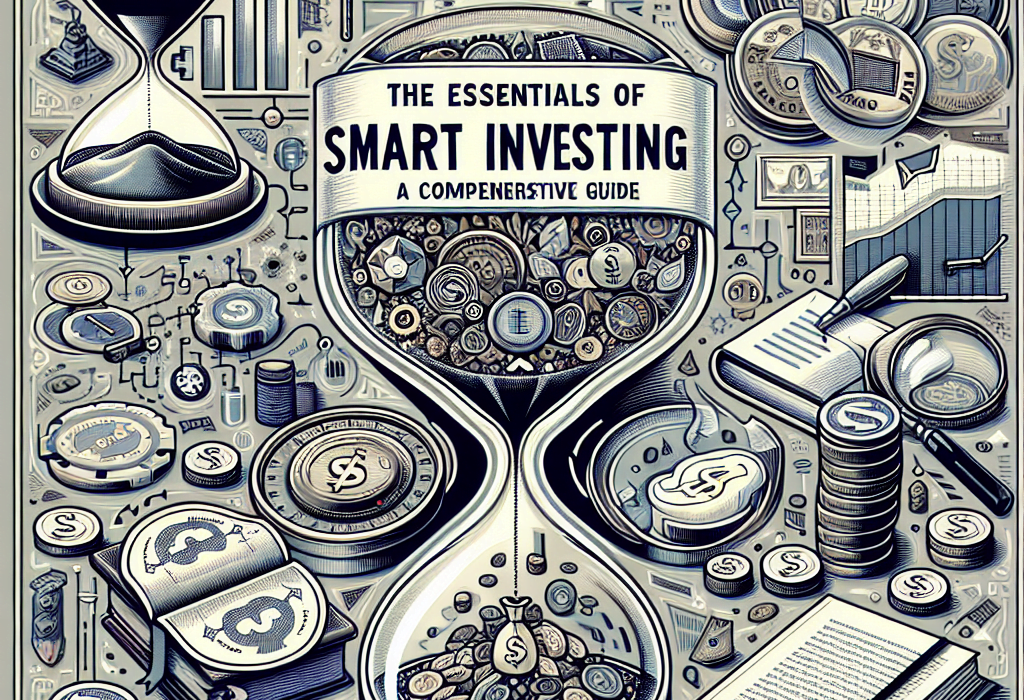We all aspire to have financial security and a safety net for the future. Investing is one way to achieve these objectives. However, the world of investing can be quite overwhelming and intimidating, especially for beginners. This comprehensive guide seeks to simplify the process and teach you how to make smart investment choices.
Understanding the Basics
Before you invest, it is important to understand the basics. Investment involves setting aside some of your money now with the hope that it will increase in value over time. There are various types of investments such as stocks, bonds, mutual funds, real estate and many others. Each of these investments carries a particular level of risk and potential return.
Setting Clear Financial Goals
Smart investing begins with clear financial goals. Are you saving for retirement, for your children’s education, to buy a house or car, or to build an emergency fund? When you have clear goals, it becomes easier to select the right investment vehicles that will help you achieve those goals.
Diversifying Your Investments
One golden rule of investing is to diversify your investments. This means spreading your investments across different types of assets. This way, if one asset or investment type performs poorly, others may perform better – offsetting losses and stabilizing your overall portfolio.
Investing for Long-Term
Investing is generally not for those looking for quick profits. Many investments require time to yield substantial returns. Patience and long-term thinking are key principles of investing. Even if your investments take a downward turn, it is often advisable to ‘ride it out’ rather than panic and sell at a loss.
Understanding and Managing Risk
All investments come with some level of risk. Understanding your risk tolerance is crucial. If you are someone who cannot cope with too much risk, you should lean towards secure, low-risk investments like government bonds. On the other hand, if you are comfortable with higher risk levels, you may choose to invest in more volatile assets like stocks.
Seeking Professional Help When Needed
While some investors prefer doing all the research and managing their portfolios themselves, others might require help. Professional financial advisors can provide valuable guidance based on their knowledge, skills and experience.
Regularly Reviewing Your Portfolio
Investing is not a one-time activity. It requires regular attention and adjustments. Factors such as changes in your financial circumstances, goals, market conditions, etc. may require you to rebalance your portfolio. Regularly reviewing your portfolio helps keep it aligned with your investment goals.
Conclusion
Investing can be a great way to build wealth and secure your future. However, it requires a good understanding of financial markets, calculated decision-making, patience, and discipline. With the essentials of smart investing discussed in this guide, you are now better equipped to navigate the world of investing. Remember, the sooner you start investing, the more time your money has to grow.
Frequently Asked Questions
1. Where should I start if I’m new to investing?
Start by understanding what investing involves, the different types of investments, and what you want to achieve. Then, you can start small and gradually increase your investments as you become more comfortable.
2. Is it wise to invest in stocks?
Investing in stocks can offer hefty returns, but they also come with high risk. It is crucial to research well and understand the risks before investing in stocks. Diversification is also key when investing in stocks.
3. How can I manage risk when investing?
Some ways to manage risk include diversifying your portfolio, investing for the long-term, understanding your risk tolerance, and seeking professional advice.
4. How often should I review my investment portfolio?
It is good practice to review your investment portfolio at least once a year. However, significant life changes or market fluctuations might necessitate more frequent reviews.
5. Is it necessary to have a financial advisor?
No, it is not necessary, but they can provide guidance, especially if you are new to investing or if you are dealing with large amounts of money.













